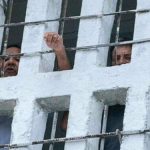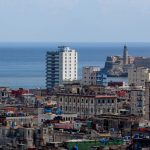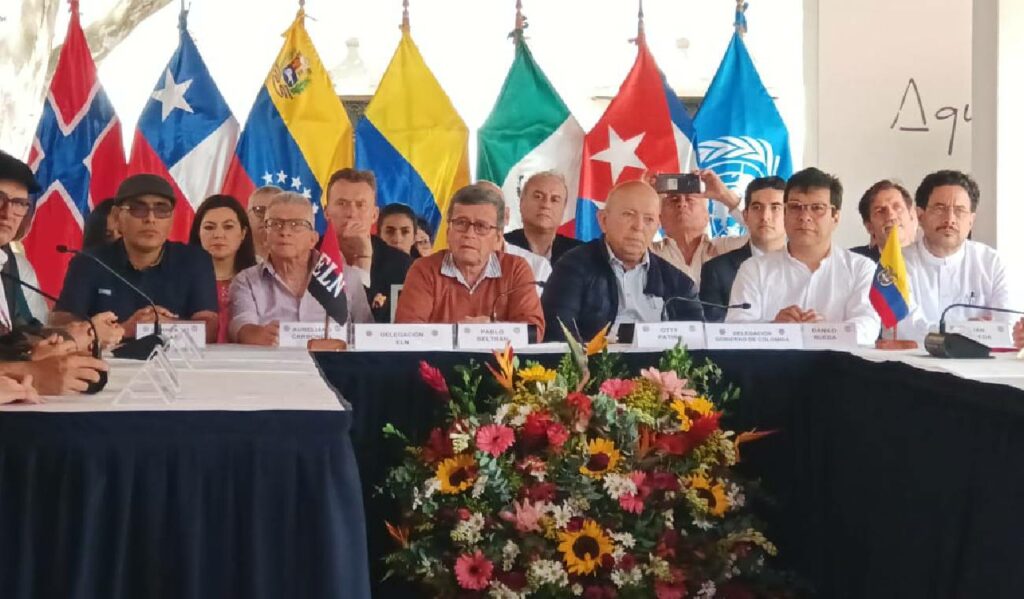Columnists from various media outlets agreed that it is urgent that the authorities come out of lethargy in the fight against crime and drug trafficking, on a weekend marked by the murder of police officer Rita Olivares in Quilpué.
The rector of the Diego Portales University (UDP), Carlos Peña, the writer Óscar Contardo and the journalist Paula Escobar and spoke out in various texts.
Peña and Contardo addressed the campaign of the mayor of La Florida, Rodolfo Carter (UDI), against the “narco-houses”, while Escobar criticized the Minister of Education, Marco Antonio Ávila (RD), for what happened with the funeral of a trafficker who forced the suspension of classes in several schools for security reasons in Valparaíso.
The authorities feared that there would be incidents during the procession to the Playa Ancha cemetery at the funeral of Camilo Noé Rojas Chepulich, alias “El Ñaju”, 27, who was shot to death on the outskirts of a Las Acacias school, at the entrance to the port, during an ambush by a rival group.
In a violent scenario, Carlos Peña, for example, assures that Mayor Carter’s actions “dwarf the rest of the authorities, which, contrary to what the community chief does, prepare escorts for the drug traffickers armed with shrapnel, make statements sheltered from his desk and calmly review the rules.
That, for the lawyer and university academic, explains that, as seen this week, Carter, “along with making enemies among the drug traffickers, is also gathering some in the Government.”
To face
Peña stressed that “Carter is the only authority that has confronted drug trafficking face to face.”
“In a country where when it comes to referring to the latter, abstractions and detours with which incapacity is concealed and cowardice abound (generic statements, purely rhetorical condemnations), Carter is capable of adopting immediate measures that show in practice , even symbolically, who is the authority, where does the power reside? He stands up to the drug trafficker and poses as an authority in front of him, without fuss or excuses,” writes the rector.
“It is true that the actions he carries out are just demolitions of irregular extensions and media representations. It is true. But to stay there is to not understand the symbolic scope of what Carter does: while those in charge of public order organize custody for the narco-funerals that are taken the streets brandishing weapons, and while the Minister of Education endorses the suspension of classes when this occurs, and the State as a whole seems to be without conduct in the face of gangs, Carter leaves his office and leads a demolition showing fictionally (but who? said that fictions in politics don’t matter?) where is the authority and where is the power”, he points out.
“All of this – despite that – dwarfs the rest of the authorities, which, contrary to what Carter does, prepare escorts for the narcos armed with shrapnel, make statements from the shelter of their desks and calmly review the rules (such as if to know that displaying submachine guns, closing the streets and intimidating is illegal, a legal report is needed). And that explains why, as we saw this week, along with making enemies among the drug traffickers, he is also gathering some in the Government ” Pena reflects.
“In short, Carter is a stone in the shoe because with his somewhat exaggerated scene he shows how much leniency, how much softness, how much timidity, how much laziness, how much indecision there is in those who should, instead of escorting the drug traffickers, prevent them from taking over the streets and walk in them displaying weapons with self-confidence. Does Carter have ideas, about the country as a whole, that can weave a program? Apparently, no (and those he does have must suffer from the serious defect of being right-wing and from the UDI); but the ability to understand the life lived in Chile, the daily life and the fears that flood the neighborhoods, he does have, and he has plenty of will”.
Narco-houses
Meanwhile, Contardo spoke in relation to the campaign of the mayor of La Florida, Rodolfo Carter (UDI), against the “narcocasas”, in which he demolishes houses supposedly used by drug traffickers.
The objective of this initiative is “to suggest that the bull is being taken by the horns about a serious situation that affects hundreds of thousands of people who must live with the violence caused by drug trafficking in their neighborhoods. But a bait does not It is not a solution, nor is it the beginning of one.”
“What is transmitted is simply the destruction of a property belonging to a category that evokes many things at the same time, all bad and worthy of being demolished, but, what is it that is concretely achieved with that to stop the narco?” Contardo wonders.
“With the mayor’s operations, these people see the presence of an authority in concrete action, someone directing an activity that in Rodolfo Carter’s narrative is a direct attack on organized crime. The mayor, like other politicians in his sector, knows the daily demands of the residents of the low-income suburbs, working-class areas that the traditional parties of the left abandoned decades ago and that the new progressive leaders tend to contemplate from a theoretical pedestal filtered by their experience as volunteers for some organization benefactress”.
In this sense, “it satisfied a real long-term demand, with an action that, however, has all the appearance of being a short-term communication palliative, which will not solve the problem of the neighbors in a lasting way, but will position it in an undisguised presidential race”.
drug funeral
Escobar, meanwhile, criticized what happened in Valparaíso.
“That dozens of schools and two universities suspended classes in Valparaíso this week for a drug funeral reveals how much and to what extent the advance of organized crime has been normalized, while impotence grows in people due to interrupted life, public spaces taken, the routines altered”, wrote the journalist.
“It is understandable – who could judge them – that directors of colleges and university establishments, frightened by the possibility of violence and shootings, have chosen to suspend. They have said that they were not aware of protocols or plans to guarantee security, that parents They were very worried, because there were already barricades and disorders that heralded a greater risk. Having felt alone in the face of this danger makes them understand the decision, but that does not take away the seriousness of what happened. It is a sign of surrender to the drug trafficker. Of submission, of impotence regarding the duty and power of the State and the rule of law. It is giving up,” the journalist lamented.
Later, he criticized Ávila, for describing the decision to suspend classes as a “good decision”, “supporting the idea of withdrawing from the coercion of organized crime.”
“A minister of State succumbing to fear against drug trafficking, what is he saying to the students of all of Chile? As a civic education class, he gave them a terrible one: instead of highlighting the importance of the rule of law, of respect to the rules, their statements reflect the fatality against those who do nothing of that. The drug traffickers not only break the laws, but they pride themselves on evading them. And they intimidate with that transgression: they base their power on their violence and on their impunity and immunity against the power of the State. Thus, in addition, they destroy trust and respect for institutions, their ability to provide security and justice,” he wrote.
In his opinion, Ávila “should have tried at all costs to prevent narco funerals or other situations of this type from taking the children out of the classroom. He should have prepared himself, he should have spoken with the municipality, with the police, with the other ministries, and urgently , firmly, to avoid that the directors had to opt for the suspension, according to what they have said, due to the lack of information and official coordination”.
Escobar also commented on the case of the “narcocasas”, writing that “there are legitimate doubts about the real efficacy of Mayor Rodolfo Carter’s policy – of demolition of the so-called ‘narcocasas’ – with respect to the objective of reducing drug trafficking; and the This initiative certainly has a lot of sensationalism and a media strategy, but people appreciate that it at least tries to do something -with the tools at hand- and, above all, that it is there where the potatoes burn. get into controversy with him, the government should show its own agenda, which is exactly what did not happen this week, because the Minister of Education was conspicuous by his absence”.


















